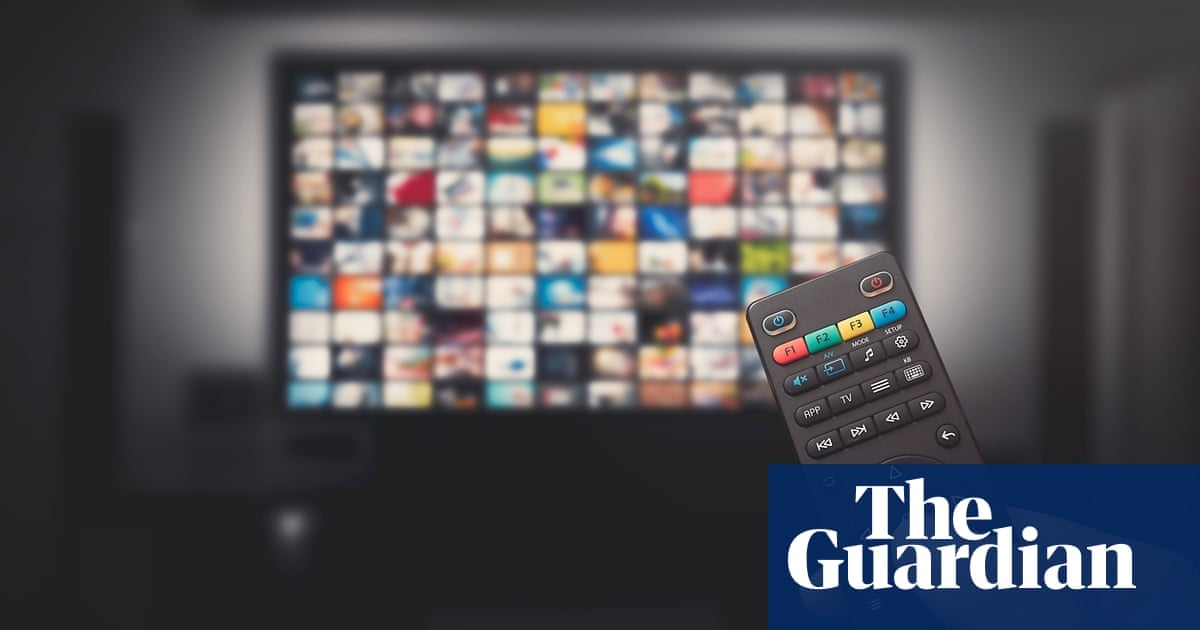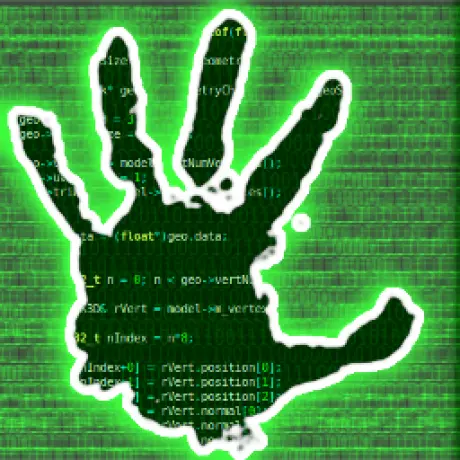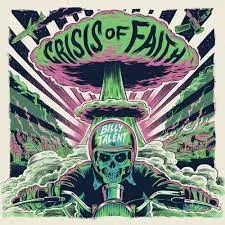*What rights do you have to the digital movies, TV shows and music you buy online? That question was on the minds of Telstra TV Box Office customers this month after the company announced it would shut down the service in June. Customers were told that unless they moved over to another service, Fetch, they would no longer be able to access the films and TV shows they had bought. *
Piracy is only illegal because we made it so. We can change that.
I think what we should do is to have better non-piracy ways of owning things instead of “making piracy legal” (what does that even mean?)
I think the more nuanced take is that we should be making “piracy” legal by expanding and protecting fair use and rights to make personal copies. There are lots of things that are called piracy now that really shouldn’t be. Making “piracy” legal still leaves plenty of room for artists to get paid.
Most people would be fine with this in the case of a home user duplicating one or two copies for his kids to watch and as backups. But we have seen whenever a rule permits something, someone will work out the MAXIMUM way in which they can abuse it for profit. Give them an inch, and they take a mile.
Ideally, we could have laws that are really finely built to be specific to that first scenario. But I honestly don’t know how you write those.
what does that even mean?
Something like this: https://www.eff.org/pages/better-way-forward-voluntary-collective-licensing-music-file-sharing
Thanks for sharing! I wish they had the date of publishing listed for this article. I get the feeling it was written 15 years ago, well before streaming music services existed. Would love to see them update this based on the latest technologies and services.
Looking into the metadata of the included PDF version reveals that it’s from 2004, so even a bit older than that.
Wow good find using the pdf metadata!
The EFF’s concept was from the Napster days, but I think this was written later on.
I want to see a world where content creators are simply paid by the hour, while they work. Why do they get to still make money off their work 70 years after they died?
Yes, it would probably mean that billion-dollar-movies aren’t viable anymore, and most YouTubers couldn’t live off their videos, but I see that as a good thing.
want to see a world where content creators are simply paid by the hour, while they work.
Do you? Because that’s how game developers get their ideas crushed in favor of yet another game as a service that nobody asked for but makes stock holders happy.
And for alternative creators, who would pay? Do they need to be churning content as a job and not because they are inspired?
I get the idea, it’s just that seems hard to pull off
How do you change that without completely stripping property rights away from artists though? Not just corporate IP, but all artists?
Piracy doesn’t take money from artists, just ask Cory Doctorow, a person making their living as a writer while uploading the torrents of his novels himself.
Corporate consolidation is what kills the artists. The studios make less movies per year, so the a list actors go to television and take the roles Rob Morrow used to get.
Is it fine for a billion dollar company to ripoff smaller artists? It’s a form of piracy, so this would be allowed, too.
Here is an alternative Piped link(s):
Piped is a privacy-respecting open-source alternative frontend to YouTube.
I’m open-source; check me out at GitHub.
That’s the neat part: you don’t have to, because copyright was never a property right to begin with.
First, not only are ideas not property, they’re pretty much exactly the opposite of it. I’ll let Thomas Jefferson himself explain this one:
It has been pretended by some (and in England especially) that inventors have a natural and exclusive right to their inventions; & not merely for their own lives, but inheritable to their heirs. but while it is a moot question whether the origin of any kind of property is derived from nature at all, it would be singular to admit a natural, and even an hereditary right to inventions. it is agreed by those who have seriously considered the subject, that no individual has, of natural right, a separate property in an acre of land, for instance. by an universal law indeed, whatever, whether fixed or moveable, belongs to all men equally and in common, is the property, for the moment, of him who occupies it; but when he relinquishes the occupation the property goes with it. stable ownership is the gift of social law, and is given late in the progress of society. it would be curious then if an idea, the fugitive fermentation of an individual brain, could, of natural right, be claimed in exclusive and stable property. if nature has made any one thing less susceptible, than all others, of exclusive property, it is the action of the thinking power called an Idea; which an individual may exclusively possess as long as he keeps it to himself; but the moment it is divulged, it forces itself into the possession of every one, and the reciever cannot dispossess himself of it. it’s peculiar character too is that no one possesses the less, because every other possesses the whole of it. he who recieves an idea from me, recieves instruction himself, without lessening mine; as he who lights his taper at mine, recieves light without darkening me.
Second, a copyright isn’t a right, either; it’s a privilege. Consider the Copyright Clause: it is one of the enumerated powers of Congress, giving Congress the authority to issue temporary monopolies to creators, for the sole and express purpose “to promote the progress of science and the useful arts.” Note that that’s a power, not an obligation, and the purpose is not “because the creator is entitled to it” or anything similar to that.
Besides, think of it this way: if copyright were actually a property right, the fact that it expires would be unconstitutional under the Takings Clause of the Fifth Amendment. But it does expire, so it clearly isn’t a property right.
Also depends on the country. It isn’t everywhere. Non-commercial file-sharing is legal in a number of European countries and I’m sure elsewhere.
It could be taken as a sign of the health of the democracy’s function and technically literacy of the population. In a society of tech heads with a highly functional democracy, it would be DRM measures that would be illegal…
If buying isnt owning then piracy isnt stealing
Piracy has never been theft, it has always been and still remain copyright infringement. That being said go ahead and pirate, I’m not your dad.
You, you could be… If you wanted to.
You just gotta show up.
Thanks for believing in me child.
That being said go ahead and pirate, I’m not your dad
What am I letters on a screen? I’m not going to stop you.
When record companies make a fuss about the danger of “piracy”, they’re not talking about violent attacks on shipping. What they complain about is the sharing of copies of music, an activity in which millions of people participate in a spirit of cooperation. The term “piracy” is used by record companies to demonize sharing and cooperation by equating them to kidnaping, murder and theft.
And piracy isn’t stealing anyway!
But I still enjoy that phrase.
Well, not digital piracy. Ye olde piracy absolutely was stealing, plus a medley of other crimes
I’m sure some digital piracy involves stealing. Someone has to have taken some floppy disk software from a store and walked out without paying for it, then made pirated copies of that disk
Sail the seas with I2P and anonymous torrents. They can’t stop it.

Digital Restrictions Management
Pretty straightforward. You need to host your stuff on your own hardware, ideally. You need good backups. You obviously can pay someone to do it for you but it does add complexity. In any case, streaming services are dead men walking by this point I think.
This is worse than a streaming service dropping a show. They are removing the ability to play digital files that people purchased.
Its happening for quite some time now. Recently sony did that on the playstation. Thats why we need to go back to self hosting the files (without drm).
Subscription streaming where you don’t “own” anything probably has a future, but I think you’re right that the writing is on the wall for digital media purchases.
I dont think streams have a future either. Look at the amount of abuse potential by companies and how far enshittification already progressed. If you have prime, you now get ads in prime video. Its disgusting.
What’s funny is that’s how it started. Apple sold movies as early as 2007 before Netflix or Amazon video or whatever and expected you to host the files locally either on your computer or your AppleTV (which had a hard disk drive at the time) and stream it locally over iTunes. If you lost the file, that was supposed to be it.
Of course, you still had to authenticate your files with the DRM service, and eventually they moved libraries online and gave you streaming access to any files you had purchased.
I remember that time. I rented a couple of apple movies when netflix wasnt a thing.
She later said Telstra had contacted her and offered a free Fetch box, which she acknowledged was a “reasonable resolution”.
And we have learned exactly nothing here. See you in 2 years when Fetch closes down and you are not getting anything back because you actually did not “buy” those movies on Fetch but on the previous platform.
Yep, assuming this new service lasts that long. Could be a year or less.
Stop trying to make fetch happen!
It’s not going to happen!
Well, that or go to court for a movie collection. I’d phrase my statement differently, but I can see the appeal of the settlement.
You will own nothing and be happy.
This is why sites like lemmy are important.
We need to put an end to corporate tyranny.
Humans in power are too egocentric to not be kept in check.
Corporations had already proven they cannot be trusted with any long-term leasing or subscription long before they started passing that phrase around.
Corporations have also already proved very difficult to actually hold to account. They can basically do as they please, with relative disregard for any consumer protections that may already exist. It’s not good, but it can get worse.
You will own nothing and be happy.
Unironically the future of capitalism, as it devolves into feudalism with more killer robots.
You’ve got the CEO (Absolute Monarch) who owns all the shit and you work on it in exchange for not being killed or deported. Maybe you get some treats from time to time. More likely, you just get someone from the PMC to tell you to pray more.
Humans in power are too egocentric to not be kept in check.
A handful of humans with the power to deliver unlimited genocide on their neighbors are hard to keep in check.
Yep, we are what make these sites important.
More and more it is becoming a good idea to store things on your own private equipment. If we don’t demand ownership of our own possessions we will soon own nothing
Don’t disagree but surely it’s not impossible to add some regulations to protect the consumers here.
Legislation is always years behind tech.
Which means it’s just about due.
While possible, by the time it comes around it’ll be too late.
i tried to get into streaming but i grew increasingly uncomfortable with paying forever as titles appear and disappear at the whim of suits. how could that possibly be a pleasant UX for customers?
i’d take the hassle of having discs or managing a server any day of the week over paying these goons for access to their files which they happily negotiate away for financial reasons. it’s just a disgusting paradigm. when netflix was starting streaming, i thought (i was like 15) we were emerging into a great new age, where every show you could ever want was on one beautiful service.
now they won’t even let you share accounts or screenshot the fucking show (a pig-headed anti-piracy measure which is mind-blowingly stupid given every single show on there is available for free if you know where to look ANYWAY. what are they DOING.)
fuck streaming, fuck netflix, fuck spotify. crash and burn. topple like the house of cards you are.
increasingly uncomfortable with paying forever
And paying more and more as time goes on. The thing that shits me the most is the increased prices but decreased range/quality of content. That’s clearly not a business model aimed at customer satisfaction.
All business models are aimed at company profitability. Customer satisfaction is an expensive early necessity which you can largely do away with as you become entrenched.
I never watch the same movie/TV show more than once, so I don’t see a point in hording this data. So for me the UX of streaming is most of the time preferrable than having a physical media which I need to carry to the new appartment every time I move.
This is different with music, where I listen to the same Albums hundrets of times. There I can deal with vinyl and many files on my computer.
Streaming was great when it was just Netflix and had a ton of content. Now it is just cable TV on demand.
Streaming in general is great. Streaming services are a mixed bag of results, but overall our options are excellent at this point in time. You can have streaming services with no contract, pay for one month and abandon it if you don’t like it. There are also numerous FREE streaming services with lots of great content.
It’s important to understand the above in the context of how it used to be before Streaming was an option. There was basically only the option to have a cable or satellite TV on contract, or use OTA antenna TV, or watch everything on disc / tape. So yeah I think streaming is great.
Having said all that, I buy anything I want to keep perpetually on disc. 4k Blu-ray for movies and CDs for music (I bought 3 albums on CD over the last couple weeks). Games don’t fit on discs anymore so I try to get stuff on GOG when it works out.
I download or capture everything I pay for. I paid for it, it’s mine.
I need to look into capturing. Feels like a nice middle ground.
same. I buy a lot of software/games and media/music/movies, and before I buy I always make sure I can pirate it down the road if I need to. if I can’t, I reconsider how much I need it. I’ll switch to my pirated copy at the drop of a hat without a drop of guilt. if it has annoying or unperformant drm? it makes me sign up for an account to use my paid software on my own computer? its servers go down and it won’t boot? switched.
What would it take to get a “Steam but TV/movies instead of games”? I feel like if I could see reviews of movies and I could buy them and download them and have them forever and buy them on sale and all that good stuff, it wouldn’t be so bad.
How come none of the streaming services have gone for this model? Steam is swimming in money, surely this method could work?
I mean I hate to say it but if steam closed up shop tomorrow your games are gone too. You buy a license, not a copy, from steam
Yes that is true - although many games on Steam can play offline so because I download the game, I own it in that fashion. They can’t take that away.
But compare with GOG then. They sell games, you download them with no DRM so you own the download essentially.
Yeah GOG is a better ownership model. Steam is not ownership
But compare with GOG then. They sell games, you download them with no DRM so you own the download essentially.
This is the model digital media should take, frankly. Anything less may as well be misleading marketing, as far as I’m concerned.
They’ve said they have a contingency plan in case that happens. They haven’t said what it is, but my guess is some kind of “you have 60 days to download your games without steamworks DRM”.
Yeah I don’t trust the good will of corporations, even the ones I personally like
@SorteKanin @thirdBreakfast I guess Amazon and iTunes would be the closest thing, but rights expire for TV shows and movies far more often than they do for games. It’s insane that there are shows from 10 years ago that aren’t legally accessible or are straight-up lost media because the rights expired.
rights expire for TV shows and movies far more often than they do for games
Any idea why there is this discrepancy between TV and games?
Money. It’s much better if you can sell the same thing over and over again.
The only difference between Steam and the streaming companies is that Steam seems to have managed to create a lasting profitable business. If this changed and Steam faced more challenges, they’d put the screws on the users just like the TV and music services do.
“buy”
“own”
“piracy”
… Wait, no. Piracy is the answer!
it feels good to host a media server.
It’s also a fucking nightmare when shit explodes, but damn do i feel good in every other instance.
The idea that you could trust a corporation, any corporation, at its word is laughable on its face, and yet the courts have been relying on them to “follow the rules” unsupervised for years. Now capitalism doesn’t make anything that isn’t designed as a piece of shit that falls apart, and everything is a lie that they’re also making money from, from plastics recycling (not real and they make money on the chemicals they sell to the recycling industry) to the content you make that they get paid for and you don’t.
The whole thing needs to go, all of it.
The idea that you could trust a corporation, any corporation, at its word is laughable on its face
We’re surrounded by corporate entities all trying to leech profit out of us.
It’s less a question of trust and more of information alternatives. When all you can hear is the din of advertisement, it’s difficult to chart a path through the racket.
You’re bound to get suckered by someone, eventually.
Even if they were trustworthy, nothing lasts forever.
Does anyone seriously think Google Play Movies or whatever they call it is going to be around in 50 years? Audible? Spotify?
Unlikely.
I grew up with access to books that were printed before my parents were even born. I doubt your grandkids will be able to say the same. Not if you buy into DRM-infected ecosystems and vendor lock-in, anyway.
The only consolation is that pirates are always one step ahead. But I wouldn’t want to count on that remaining true in 50 years either.
If purchasing isn’t ownership, piracy isn’t stealing.
There are obvious responses here along the lines of embracing piracy and (re-)embracing hard copy ownership.
All that aside though, this feels like a fairly obvious point for legal intervention. I wouldn’t be surprised if there are already existing grounds for legal action, it’s just that the stakes are likely small enough and costs of legal action high enough to be prohibitive. Which is where the government should come in on the advice of a consumer body.
Some reasonable things that could be done:
- Money back requirements
- Clear warnings to consumers about “ownership” being temporary
- Requiring tracking statistics of how long “ownership” tends to be and that such is presented to consumers before they purchase
- If there are structural issues that increase the chances of “withdrawn” ownership (such as complex distribution deals etc), a requirement to notify the consumer of this prior to purchase.
These are basic things based on transparency that tend to already exist in consumer regulation (depending on your jurisdiction of course). Streaming companies will likely whinge (and probably have already to prevent any regulation around this), but that’s the point … to force them to clean up their act.
As far as the relations between streaming services and the studios (or whoever owns the distribution rights), it makes perfect sense for all contracts to have embedded in them that any digital purchase must be respected for the life of the purchaser even if the item cannot be purchased any more. It’s not hard, it’s just the price of doing business.
All of this is likely the result of the studios being the dicks they truly are and still being used to pushing everyone around (and of course the tech world being narcissistic liars).
Another thing to add - these services can’t use the word ‘buy’ because that implies ownership. They should be forced to use a word like ‘rent’.
Oh for sure. All of this is clearly a situation where the law is slow to catch up.
I always thought it should be “unlock”, because that’s more what is happening. you’re not buying it, renting has a connotation of a fixed term ownership time, but unlock describes the action… they’ve had the movie the whole time sitting there, probably in a CDN near your home already, but you’re not allowed to see it until you pony up. it’s locked away.

























